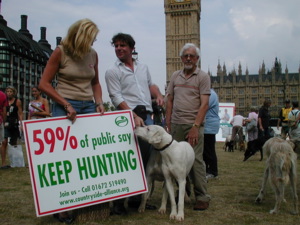We are developing the social individualist meta-context for the future. From the very serious to the extremely frivolous... lets see what is on the mind of the Samizdata people.
Samizdata, derived from Samizdat /n. - a system of clandestine publication of banned literature in the USSR [Russ.,= self-publishing house]
|
Oliver Letwin is one of my favourite Parliamentarians, so I was pleased to find an article by him in today’s Telegraph. He is defending the right to trial by jury – which is under attack again by Our Glorious Government. He makes the very good point that the legal system should be bottom-up, rather than top-down:
There are, in essence, two models of justice. In the first, justice is an item imposed from above upon the community. In the second, justice is the means by which the community uses the power of the state to protect itself.
The significant difference between these two models is that, if justice is seen as something imposed from above, the citizen begins to regard the law and its enforcement as alien forces; whereas, in the second model, justice is understood to be something in which we all have a stake – and hence, as an activity in which all honest citizens can co-operate.
This of course helps protect individuals from abuse by the state:
The fact that amateurs have this role is one of the guarantees against the state arbitrarily imprisoning an individual.
The depressing thing is that David Blunkett just doesn’t get it. He doesn’t see why the people need protecting from him. After all, he’s an altruist and New Justice is in everyone’s interest. He’s from the government and he’s here to help.
Labour’s first term in office was relatively moderate for a Labour government. Most of the damaging policies were done by stealth or – with policies like foxhunting – put off until the future. This term, however, Labour is much more authoritarian, openly raising taxes, creating regulations and destroying civil liberties. But a third term, with Blunkett still in the Home Office and possibly Brown as PM, is not a prospect I like to think about.
Today’s news about the Home Secretary inexorably steamrolling his Big Blunkett ID card scheme fills me with gloom. It is the same sentiment that gripped me in April this year when the news of the revived ID card plans reached the headlines and made me set up White Rose, a protest blog collective.
The blog has been up and running with the help of some notable bloggers who find the issues of civil liberty a hot topic in the Western world. However, a blog alone may not be enough. Civil disobedience may be the only way to oppose the damage being done. Such actions start from individuals. And we are all individuals here, right?
For now, we have only the shining example of Mr Willcock. Let’s see what we can come up with…

Home Secretary, David Blunkett, has gained Cabinet approval to push forward his plans, for compulsory ‘Magic Eye’ ID cards, for all British citizens.
Ladies and Gentlemen, we are entering the abyss.

Make no mistake, the moves afoot to ban hunting in Britain have very little to do with animal welfare but everything to do with class warfare. It is nothing less than a clash between those who believe civil society must be tolerant to those who share different minority views and who wish to freely associate in the pursuit of a beloved activity… and those who believe that state and violence backed political interaction, rather than society and voluntary social interaction, is the core around which all activity must revolve.
The class warriors of the Labour and LibDem Parties, and a few statist Tory confreres, wish to regulate notions of free associating civil society out of existence and replace it with a regulatory democratic state in which no aspect of rights or affinity are beyond the reach of regulatory politics… nothing less than an intolerant dictatorship of the political plurality.
Well a bunch of people met in front of Parliament today who said that regardless of what the bigoted class warriors of Westminster say, they are not going to cooperate.







The class warriors are not ‘progressive’ at all… they are in fact the heirs to a view of the role of the politics which in days gone by used law to oppress other despised minorities, such as homosexuals or Roman Catholics. They are just hate filled sanctimonious collectivist bigots.
(the photos taken today courtesy of The Dissident Frogman because my camera is knackered)
A leaked memo revealed that David Blunkett is pushing the Cabinet to back national identity cards for everyone aged 16 and over, carrying biometric information, such as fingerprints, to allow police to confirm the holder’s identity. Under Mr Blunkett’s scheme, the card will cost £39 for most people between the ages of 17 and 75.
An opinion piece about the identity cards news in Telegraph is yet again explaining what is wrong with Blunkett’s argument. Basically, each of the claims made by the Home Secretary in support of his pet scheme is wrong.
- First, Mr Blunkett says that there is strong public support for the idea. In fact, the Home Office’s recent consultation exercise focused on the concept of an entitlement card, a very different prospect. (Also, according to this Out-law article, the goverment has admited that the public opposes the ID card scheme.)
- The Home Secretary goes on to argue ID cards will help fight crime. This is one of those assertions that is forever being made, but hardly ever substantiated… The public mood is said to have changed since September 11, 2001, but no one has explained – or even seriously tried to explain – how ID cards would have thwarted those bombers, many of whom died in possession of forged papers.
- Nor, by the way, are ID cards a solution to illegal immigration. The root of the asylum problem is not that we cannot find clandestine entrants, but that we never enforce their deportation.
- More faulty still is Mr Blunkett’s central proposition, as set out in a letter to his Cabinet colleagues: “The argument that identity cards will inhibit our freedom is wrong. We are strengthened in our liberty if our identity is protected from theft; if we are able to access the services we are entitled to; and if our community is better protected from terrorists.” In an appendix to Nineteen Eighty-Four, Orwell describes how a concept can be traduced if the words used to express it lose their meaning. The example he gives, uncannily, is the word “free”. Now here is Mr Blunkett using “freedom” to mean more state control.
- Any doubts as to the wisdom of the scheme must surely be removed by the Home Secretary’s final argument in its favour: that we are “out of kilter with Europe”. Indeed we are, thank heaven. Policemen in Britain are seen as citizens in uniform, not agents of the government.
The most worrying is Blunkett’s spin on the concept of freedom. In his view we are strengthened in our liberty if our identity is protected from theft; if we are able to access the services we are entitled to; and if our community is better protected from terrorists. This is vaguely based on the distinction between negative and positive liberty, which are not merely two distinct kinds of liberty; they can be seen as rival, incompatible interpretations of a single political ideal.
Negative liberty is the absence of obstacles, barriers or constraints. One has negative liberty to the extent that actions are available to one in this negative sense. Positive liberty is the possibility of acting – or the fact of acting – in such a way as to take control of one’s life and realize one’s fundamental purposes. While negative liberty is usually attributed to individual agents, positive liberty is sometimes attributed to collectivities, or to individuals considered primarily as members of given collectivities.
Blunkett and his New Labour chums are classic and rather unexceptional anti-liberals. (I use the term liberal in its original meaning, based on negative definition of liberty and claiming that in order to protect individual liberty one should place strong limitations on the activities of the state.) In Blunkett’s mind, the pursuit of liberty (whether of the individual or of the collectivity) requires state intervention, which, by definition, is not contradictory with limitations on personal freedom. As a result, the protests of civil liberties groups do not make sense to him.
The concept of freedom as being unprevented from doing whatever one might desire to do is alien to him. According to Isaiah Berlin the defender of positive freedom will take an additional step that consists in conceiving of the self as wider than the individual and as represented by an organic social whole – “a tribe, a race, a church, a state, the great society of the living and the dead and the yet unborn”. The true interests of the individual are to be identified with the interests of this whole, and individuals can and should be coerced into fulfilling these interests, for they would not resist coercion if they were as rational and wise as their coercers.
I will not grant Blunkett’s social and political philosophy such level of ‘sophistication’. I will say that his are the simple and toxic insticts of a collectivist and a statist and that those protesting policies based on them will have their words muffled by the Big Blunkett.
Cross-posted from White Rose
The Chancellor Gordon Brown has long been hailed as an economic wonder, a giant, a prince among men; a proto-tyrant possibly, but nevertheless an economic God. What a load of old spoons. Those feckless Tory MPs in the House of Commons may be scared of his bombastic rhetoric, his curling lip, and his comprehensive knowledge of the canon of John Kenneth Galbraith; well, at least the idiot’s guide to John Kenneth Galbraith. But let me tell you of a tale, to put a sword to the lie of this risible greatness.
It began yesterday morning, at 10am. The phone rang. A certain Englishman, of Scottish, Irish, and Jewish extraction, picked up the phone.
“Yes?”
“Hello, is that Mrs Duncan?”
“No, who’s this?”
“It’s the Inland Revenue, in Liverpool. Can I ask you some questions?” The man panicked. Did he ‘owe’ £10,000 more in Corporation Tax? Had his company secretary, or accountant, failed to send in Form IR-XYP/9100/97/a.30, his thirtieth of the year? He decided to go for the polite response, in case this was being taped.
“Yes…”
“But first, you will need to answer some security questions…” → Continue reading: Tales from the kingdom of the mad
Having been published last month, this article, in blogosphere terms, is verging on the archaeological but it is well worth a delve into the archives for a sobering illustration of just how despotic and deranged our ruling classes have become.
Not content with having turned our justice system into a playground for victimologists, parasites and professional race-baiters, the Home Office is now preparing the ground for an arbitrary police-state:
The government’s war against men is now plumbing ever more astonishing depths. On Radio Four’s Today programme yesterday, the Home Secretary David Blunkett could scarcely wait to boast of new proposals to deal with domestic violence.
Anyone truly concerned with civil liberties could not fail to have been appalled by Mr Blunkett’s comments. The problem was, he enthusiastically explained, that at present ‘you have to get someone through court’ before a domestic violence suspect can be restrained.
So his solution is to restrain them before they even get to court. In other words, he wants action taken against a man on the basis of an unproven allegation by a woman– made under the protection of anonymity, to boot. So much for this Home Secretary’s understanding of the presumption of innocence, the meaning of justice and the necessity for a trial of the facts.
The article deserves to be read in it entirety in order to understand the extent to which the Home Office has deliberately ignored or manipulated statistical data in order to justify their insistence that male violence in the home is far worse and far more common than it actually is. Another case of tailoring the data to fit the political agenda.
These wicked and spiteful proposals are not on the books yet but they are clearly on the drawing board and, as per usual, it is only a matter of time before they are enacted thus ending the protection of the law for every man in this country.
The scope for abuse of powers like this is simply enormous and any case of abuse will lead to a man losing his home, access to his children and possibly even his livelihood all on the basis of an unproven and unanswerable allegation.
The damage this will cause to families and the fabric of society remains to be seen but, tragically, it will be seen thanks to a regime which is deeply in thrall to dangerously extremist femininst ideologues and which has now run out of easy targets.
[My thanks to Dr.Chris Tame who posted this link to the Libertarian Alliance Forum.]
The UK government’s chief medical officer, Sir Liam Donaldson, has claimed that outlawing smoking in bars, pubs, clubs, restaurants and at work would dramatically reduce levels of lung cancer, and other lung diseases, caused by passive smoking. It seems the push is on, by the UK do-gooding society, to follow the example recently set by Michael Bloomberg, in New York.
Significantly, Sir Liam cited a recent government report, which claimed that 88% of people were in favour of smoking restrictions in restaurants. He obviously knows where to hit a government hard, especially one with no other principles than those dictated to it by opinion poll.
No doubt the UK government’s response will be to say, at first, that it has no plans to impose a public area smoking ban. Then it will say if private businesses fail to co-operate with a ‘voluntary’ ban, it will be ‘forced’ to take the necessary action to impose one, and then eventually, it will ‘regretfully’ impose the ban, if the appropriate opinion polls tell it to.
I am non-smoker myself, having taken seven New Year Eves to finally give the filthy weed up, but I am with South Oxfordshire’s very own TV celebrity chef on this one; Antony Worrall Thompson said on Channel 4 News last night:
I believe in smoking and non-smoking areas. If you don’t like a place because people are smoking don’t go in.
No doubt one day smoking will be banned completely in the UK, if these do-gooders keep up their do-gooding work, even in the privacy of your own home. The fact that people have to die of something, eventually, seems to have fully escaped them.
On the day they do successfully get smoking fully banned, thereby creating an enormous black market and making it even more sexually attractive to teenagers causing them to start up in the first place, is the day I will light up again. I am not looking forward to smoking Golden Virginia roll-ups again, but if it is in the cause of freedom, and helps the US economy to boot, so be it!

When Hong Kong was handed over to Communist China by the British state, to much joy and acclamation by credulous Chinese and Gweilos alike, the totalitarian gerontocracy in Peking pronounced soothingly that Hong Hong would retain its relatively liberal order under a doctrine ‘One nation, two systems’.
Tens of thousands of people have marched in protest at a planned anti-subversion law aimed at an EU style ‘harmonizing’ of Hong Kong law with that of the rest of Communist China. One nation, one system it would seem.
…the government is pushing through the national-security legislation, known as the “Article 23” measures, too quickly, and without enough public debate. The proposal is in many ways an attempt to bring Hong Kong’s laws regarding subversion, treason, sedition and the theft of “state secrets” in line with China’s.
Well it comes as no surprise to me that these patent lies only took six years to be revealed. I look forward to hearing the people who rejoiced at the surrender of Hong Kong’s people to China recanting their folly. I am not holding my breath however.

The Chinese way of dealing with effective protests
(WSJ link via Combustable Boy)
While opinions may vary on the correctness of the opinions of people who believe the income tax was illegally instituted – and there is some historical evidence that on the issue of employer withholding they are correct – few libertarians would disagree they have a right to say it.
That right is exactly what is being abridged:
“On Monday, June 16, Federal District Court Judge Lloyd D. George issued a preliminary injunction banning the sale and distribution of Irwin Schiff’s book about the income tax titled, “The Federal Mafia: How The Government Illegally Imposes And Unlawfully Collects Income Taxes And How Americans Can Fight Back.”
Say what you will, this is a rather vile and blatant breach of the First Amendment. Judge George should be severely reprimanded.
If you are interested in very large court documents, I’ve made the Court Order available for reading.
And speaking of Judges who should be reprimanded… A Texas judge who was in trouble once before has reverted to his previous bad behavior and placed a tax withholding protestor in jail without bond and after improper procedures.
This was after a previous hearing in which the judge nearly laughed the State out of court over their claim the dissenting corporate CEO was a flight risk. While their victim is in jail, the IRS is spreading rumours the company has been dissolved. Creditors are calling the victimized company demanding cash payments.
Just one more example of “Your Government Servicing You”… like a bull with a cow…
Due to the high risk of an embarrassing misunderstanding here, I think it behoves me to start off by advising our American readers that, in Britain, the word ‘fags’ is a slang term for ‘cigarettes’. It is not generally perceived as having anything to do with homosexual men.
And this is important because cigarettes are no longer just ‘fags’ or even ‘smokes’. Now, they are symbols of defiance as well.
For the past two decades or so, tobacco manufacturers have been forced to print hectoring health warnings on cigarette packets. But now, due to a directive from Brussels (where else?) manufacturers are required cover at least half the space on both the front and rear of the packet with even more lurid warnings. It is the kind of useless, paternalistic gesture that enables the European political classes to posture self-righteously at someone else’s expense.
At last, though, someone is fighting back in the form of a website called ‘Fake Fags’ through which you can purchase waggishly irreverent stickers to cover up the politically-mandated health warnings on your cigarette pack.

It is a delicious act of subversion and, predictably, it has sent the reactionary health fascists into a blue funk:
Deborah Arnott of anti-smoking group ASH criticised the labels.
“These labels do not strike me as being funny,” she told BBC News Online.
Well they strike me as hilarious and I am very heartened that at least some of my compatriots are not prepared to throw in the towel just yet.
Never mind San Francisco or Hampstead, Brussels is the true home of the radical student left. Still as committed as ever to the anti-ismism crusades of the 1980’s, they continue to dig away at the foundations of our ‘bourgeois values’.
Seems they have just struck another seam:
The Commission is in the final stages of drawing up a directive to ban sex discrimination, with implications for the media, advertising and insurance industries.
The draft directive, revealed in Tuesday’s Financial Times, would leave it to the courts to decide whether programmes or advertisements were sexist or “did not respect human dignity”. An explanatory note says: “The purpose of this provision is to avoid throughout all forms of mass media all stereotypical portrayals of women and men, as well as any projection of unacceptable images of men and women affecting human dignity and decency in advertisements.”
The law could have profound implications for institutions such as Britain’s topless Page Three girls in The Sun newspaper and vast swathes of Italian television. Advertisers using sex to sell could also be affected.
If it wasn’t so offensive and inappropriate, I’d say that they’ve just discovered a motherlode.
The real devil in this detail lies with the apparently reasonable proposition to ‘leave it to the Courts’ thereby providing a fig-leaf of objective justice. Actually, though, this is a charter and blessing for looney-left activists to drag any number of advertising agencies and media companies through any number of Courts on pretty much any pretext they damn well please (as these things are usually drafted in the widest and vaguest possible terms).
However, in practice, this will only need to be done once or twice for the wicked capitalists to get the message and, in order to avoid the risk of a ruinous lawsuit, start censoring themselves. That is the ideal solution because why bother with all that messy and troublesome enforcement business when life is so much easier for the ruling elite if everyone just internalises their own repression.
The European Union: if it didn’t exist, we would not have to invent it.
|
Who Are We? The Samizdata people are a bunch of sinister and heavily armed globalist illuminati who seek to infect the entire world with the values of personal liberty and several property. Amongst our many crimes is a sense of humour and the intermittent use of British spelling.
We are also a varied group made up of social individualists, classical liberals, whigs, libertarians, extropians, futurists, ‘Porcupines’, Karl Popper fetishists, recovering neo-conservatives, crazed Ayn Rand worshipers, over-caffeinated Virginia Postrel devotees, witty Frédéric Bastiat wannabes, cypherpunks, minarchists, kritarchists and wild-eyed anarcho-capitalists from Britain, North America, Australia and Europe.
|















